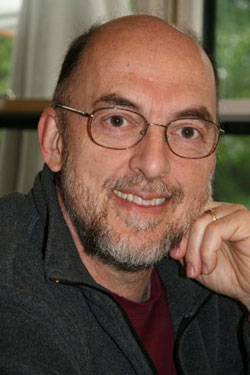
David J. Mladenoff
I returned to UW-Madison in 1994 after nine years, first with The Nature Conservancy, and then the University of Minnesota. UW-Madison has very few equals in the field of applied conservation science. Colleagues in related fields across campus afford unlimited opportunities for collaboration; we can attract the best graduate students and have excellent support in building links with colleagues in other countries. This creates a very supportive environment.
The Beers-Bascom Professorship funds provided key support for a number of things in the last year. Also, it is noteworthy how the support from previous years is now bearing fruit. The funds allowed me and my graduate students to travel to several national and international conferences to present our research. This visibility is particularly important with three students nearing the end of their PhDs and entering the job market in a difficult time.
Similarly, the funds provided key financial support for publications in major books and journals. Because our research involves landscapes and spatial data, it often needs to be portrayed in complex color maps, which are costly to publish (yes, we pay to publish, not the other way around!). The fund also provided key field travel support to complete field work at one of our Wisconsin field sites, covering a lapse in grant funding for a short period. This proved to be very important; without it, data collection would have been interrupted on a six year forest experiment.
Finally, due to my past support by the fund allowing me to build a project with colleagues in Italy, they have funded a training visit to my lab by two post docs from the University of Turin for two weeks, and a graduate student from Rome for nine months. Following this, they will return to Italy and further work on our collaborative project. None of this would have been possible without the Beers-Bascom funds. Collectively, the support has also benefited my undergraduate teaching. I have been able to include much more first-hand information from our research into my lectures. Drawing parallels with our U.S. and overseas research has kindled interest in a number of students to see conservation and land use issues in a broader context.
Next, I will return to Italy to work with our newly trained post docs and my colleagues there. They have invited me and will pay half my expenses. I have also been invited to present our work at an international conference in Sweden on old-growth forests. I could not do this without the Beers-Bascom funds.
The Beers-Bascom Professorship has allowed me to do many things that have expanded where and with whom I can work, making new links with top scientists in the field in Italy. The fund has also allowed me to be a more effective mentor to my graduate students, providing key support to add to their research, their visibility in the field and success in a competitive job market.
David J. Mladenoff is the Beers-Bascom Professor in Conservation for 2009-2010 in the Department of Forest and Wildlife Ecology
